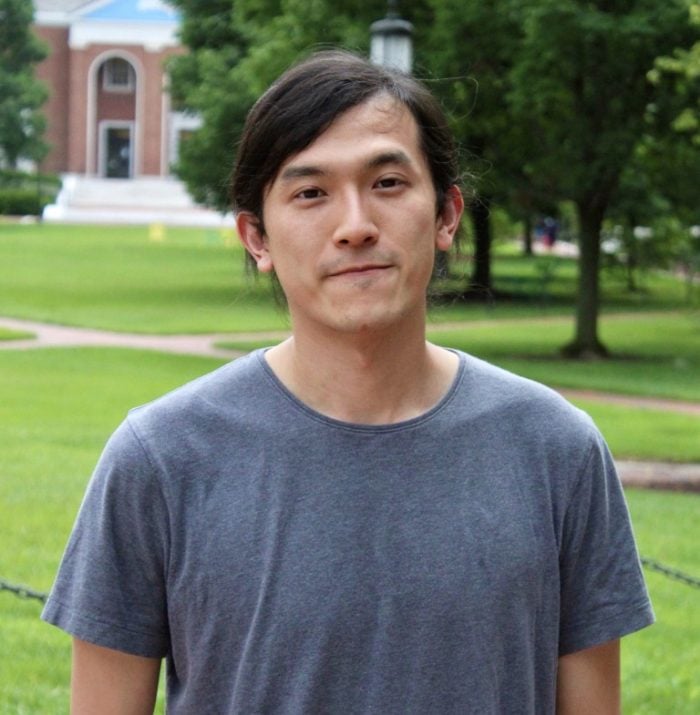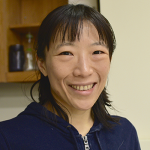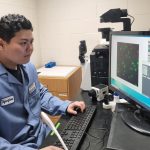Wei-Hung Jung Receives NCI F99/K00 Award

Wei-Hung Jung, a fourth-year graduate student in the Department of Mechanical Engineering, has won the National Cancer Institute (NCI) Predoctoral to Postdoctoral Fellow Transition Award (F99/K00). Jung is the first Johns Hopkins student to receive this competitive fellowship, which was introduced in 2016.
The fellowship is given to outstanding graduate students with high potential and interest in becoming independent cancer researchers. It provides six years of funding, which will support Jung’s remaining dissertation research at Hopkins and help him transition into a mentored, cancer-focused postdoctoral research position.
Jung was one of 24 candidates selected for the fellowship this year. Nominations were limited to one student per institution; he was unanimously ranked by a faculty committee as the top candidate across Johns Hopkins, according to a nomination letter from Ed Schlesinger, dean of the Whiting School of Engineering.
Originally trained as a geneticist, Jung’s research bridges physics, biology, and mechanics to address important questions about cancer. He is especially interested in how biophysical cues in the tumor microenvironment promotes tumor progression.
“Cancer is a disease where biophysical and biochemical norms in the body have both gone awry. Current treatment strategies, however, are mostly focused on addressing the abnormal biochemistry during cancer development. I enrolled in a mechanical engineering PhD program because I came to realize the importance of developing an integrated understanding of cancer biology, one in which the contribution of biophysical factors, such as diffusion and tissue mechanics, are also considered,” said Jung.
The fellowship will enable Jung to continue his research on how fibroblasts promote tumor growth, under the supervision of Yun Chen, assistant professor of mechanical engineering and an associate researcher in the Institute for NanoBioTechnology.
Cancer cells, the extracellular matrix (ECM), and carcinoma-associated fibroblasts (CAFs) are three critical factors that contribute to tumor growth. The presence of CAFs are often associated with a poor prognosis because CAFs secrete metastasis-promoting proteins and abnormally deposit collagen. This facilitates integrin-dependent cancer invasion and hinders anticancer drug delivery. And even if the tumor is removed through surgery, CAFs can keep contributing to tumor formation and cause cancer to recur after treatment, says Jung.
Jung’s work has shown that cancer cells generate strong mechanical forces to reorganize the ECM. This reorganization transforms healthy fibroblasts into CAFs, which then promote metastasis. Jung and Chen recently published these findings in Biomaterials.
Based on this discovery, Jung is pioneering a fibroblast-based cell therapy to stabilize and/or restore the ECM architecture—an approach he believes will prevent CAF induction and reduce the recurrence of cancer. He is currently testing the therapy in mouse models of early-stage colorectal cancer.
For his postdoctoral research, Jung plans to refine this invention, for which he filed a patent earlier this year.
“I’m honored to have been awarded this fellowship. It will allow me to choose a suitable laboratory in the U.S. where I can continue to uncover new mechanisms of tumor progression. And, hopefully, I can leverage the findings made during my PhD training to develop better treatment strategies for colorectal and other cancers,” said Jung.





